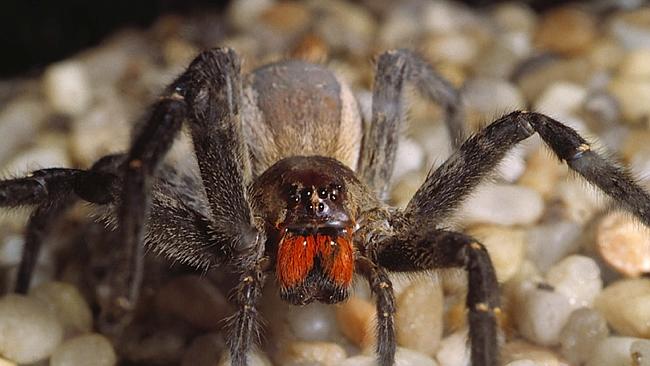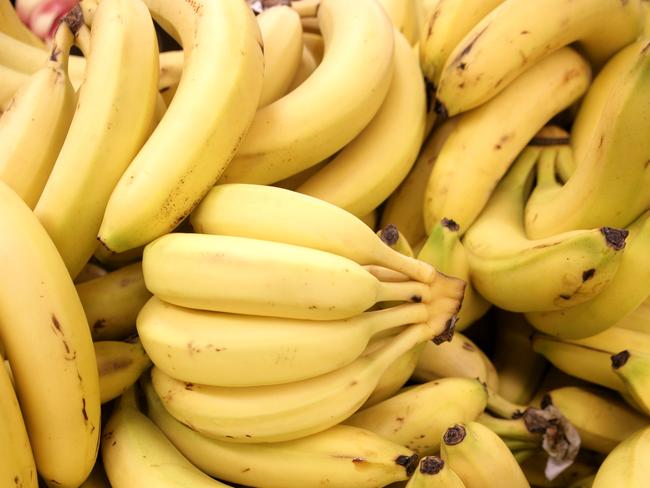Brazilian wandering spider sighting spooks family after seeing it in a bunch of bananas from Aldi in Britain
KNOWN as the ‘murderess’, the world’s deadliest spider was feared to be on the loose in the UK after a family found a nest in a bunch of bananas.

SPIDER eggs discovered in a bunch of bananas purchased from an Aldi supermarket in the UK have been found to belong to a harmless species.
Keith Hobbs and wife Laura fled with their four children when told it was probably the Brazilian wandering spider, which can have legs up to 15 centimetres long and can kill with its venomous bite.
They found the cocoon at their home in Nuneaton, Warwickshire, on Thursday.
Deputy head teacher Mr Hobbs, 32, told The Sun newspaper: “As soon as we knew what they were we just grabbed the kids, who were in their pyjamas, and ran out the house.
“We’ve spent the night in a hotel room. It’s terrifying — it’s like a bad dream.”
Mrs Hobbs’s parents bought them the bananas from an Aldi store in Hinckley, Leicestershire.
After she opened the bag and found the nest her husband called police and also contacted wildlife experts.
The Aldi shop was temporarily shut on Friday but reopened in the afternoon after no spiders were found.

An Aldi spokesman said: “The safety of our customers is our absolute number one priority and, as such, the bananas in question were immediately removed from the store as a precautionary measure.
“Following independent expert analysis, we can confirm that the eggs in question were totally harmless and not from the Brazilian wandering spider (Phoneutria fera).
“Whilst our bananas are of the highest quality and delivered by one of the world’s largest suppliers, these incidents, whilst extremely rare, can occur and we apologise for the distress caused to Mr Hobbs and his family. The Watling Street store in Hinckley is now fully open to customers.”
Venom from the Brazilian wandering spider can kill a person in just two hours, with victims suffering nausea, hypothermia and convulsions.
Declared the most venomous spider in the world by the Guinness Book of Records, it is found in South and Central America and its Greek name, Phoneutria, translates as “murderess”.
Rather than building a web to catch its prey, the spider hunts insects, small mammals and reptiles on the jungle floor.



